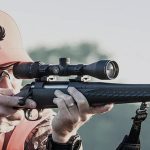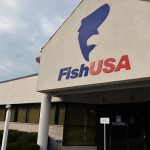Amer Group still expects to be the number one sports equipment company in the world, but may have slipped in the second quarter in their drive to achieve that goal. Total company net sales in Q2 were impacted by the companys withdrawal from the tobacco business in March, declining 9.6% to 225.7 million versus 249.6 million in the year-ago period.
Excluding the tobacco business and the effects of currency exchange, sales were down 4.2% for the period, or down 1.2% when measured in U.S. dollars. Almost two-thirds of the companys business is now done in the Americas.
Net income fell 48.9% to 4.6 million, or 0.19 per share, from 9.0 million, or 0.39 per share, in Q2 LY.
Amers divestment of the Tobacco business pushed the Americas to 64.8% of total company sales in the second quarter versus 58.3% in the year-ago period. Sales in the Americas rose 6.5% when measured in U.S. dollars.
Asia/Pacific also increased as a share of the total, while EMEA sales, which include Europe, the Middle East, and Africa, fell to 22.4% of sales from nearly a third of total sales in last years Q2. A/P sales were up nearly 30% to 28.8 million versus 22.2 million in Q2 last year. EMEA sales were down 38.2% for the period to 50.6 million from 81.9 million in the year-ago period. Excluding the Tobacco business, EMEA sales were off 5.0% to 49.8 million.
In the first half, net sales in local currencies grew 13% in the Americas and 18% in Asia/Pacific, but declined by 15% in EMEA.
The Wilson Sports business was flat for the quarter at $181 million in the period. Racquet Sports division sales rose 5.4% when measured in U.S. dollars and Team Sports increased 10.3% in Q2 in Wilsons home country currency. Golf sales, which were negatively affected by deliveries that were pushed into Q1 and a lack of re-orders, declined 12.1% when measured in U.S. dollars.
Racquet Sports sales were off 0.5% when measured in the reporting Euro currency to 57.5 million and made up 25.6% of total company non-Tobacco sales for the period. Racquet Sports represented about 26.3% of company non-Tobacco sales in Q2 2003. Divisional EBIT increased 8.7% to 7.5 million ($9.0 mm) in Q2 versus 6.9 million ($7.8 mm) in the year-ago period. In U.S. dollar terms, EBIT was up 15.2% for the period.
For the first half, Racquet Sports net sales in local currencies grew by 7%. Sales grew in the Americas by 7%, in EMEA by 2% and in Asia Pacific by 18%. Sales of Wilson tennis rackets increased 7%. Sales of higher priced performance tennis rackets, Series H and Triad, grew especially in Japan and Europe.
In the Americas, sales of lower price-point rackets at mass merchants and sporting goods retailers were said to be the drivers. Sales of tennis balls increased 8%. Sales of footwear declined by 8% for the first half.
The company said Wilson is the best-selling brand in North America and Japan and is number two in Europe. They claim the #3 spot in tennis balls worldwide.
Golf division sales were down 17.1% in Euro terms to 50.1 million from 60.4 million in Q2 last year. Net sales in local currencies declined 15% compared to 2003. The golf division shrunk to 22.3% of non-Tobacco company sales in the period, versus 27.4% of total non-Tobacco sales in the year-ago period. Divisional EBIT declined 5.9% to 4.8 million from 5.1 million in Q2 last year. EBIT in U.S. dollar terms slipped 0.3% to $5.8 million.
Sales in the first half were flat to last year in local currency terms. Sales grew by 26% in Asia Pacific, flat to last year in the Americas, and declined by 11% in EMEA. Sales of Wilson golf clubs were similar to last year, but sales of golf balls declined by 7% in the first half.
Profitability benefited from the restructuring of Wilsons US businesses and associated adjustment of its cost structure to correspond to prevailing business conditions, which began last year. However there was a dampening effect due to a decline in average selling prices.
Amer said the primary goal for the Golf Division in 2004 is profitability and to stay flat to last year in sales measured in local currency terms.
The Team Sports division saw Q2 sales increase 4.1% to 42.7 million versus 41.0 million in the year-ago period. Sales in U.S. dollar terms increased 10.3% in the quarter. Divisional EBIT fell 34.8% in the period to 3.0 million ($3.6 mm) from 4.6 million ($5.2 mm) in Q2 last year. EBIT was down 30.9% in U.S. dollar terms.
In the first half, the Team Sports division sales grew by 12% in local currencies. Sales grew by 15% outside the U.S.
The fastest growing product categories in Team Sports were footballs, which posted a 19% gain in the first half, and basketballs, which grew 24% in the period. Sales of basketballs were driven by the official game ball agreement with the NCAA and a complete range of NCAA basketballs. Sales of baseball and softball bats grew by 14%, driven by the continued success of the DeMarini product. In the US, Half and Half bat technology continues to be a strong business driver. Sales of baseball gloves declined 11%. Sales were also boosted by the acquisition of Athletic Training Equipment Company Inc. in November 2003.
As Americas Takes Bigger Slice of Pie…
The Winter Sports division focused on producing next season's lines during the second quarter of the year. Sales were up 7.0% to 7.6 million from 7.1 million in Q2 last year. The divisional EBIT loss increased 8.9% to 9.8 million ($11.8 mm).
For the first half, Winter Sports net sales 13% when measured in local currencies. Sales grew by 26% in EMEA and by 16% in the Americas. Sales of alpine skis grew by 7%. EBIT in the half was impacted by some investment in strengthening the distribution network, especially in Japan, where Winter Sports distribution has been transferred to Amer Sports Japan. Distribution in Japan has previously been handled by ASICS Japan.
Amer said the Winter Sports divisions pre-season orders are up approximately 9% versus the year-ago level. Winter Sports net sales for the year as a whole in local currencies are expected to grow by approximately 10%.
The Fitness Equipment division, which is anchored by Precor, posted a 34.6% increase in Q2 sales to 46.3 million from 34.4 million in the year-ago period. Sales in U.S. dollar terms increased 42.6%, pushing Precor to nearly 21% of total company non-Tobacco sales versus 15.6% in the 2003 second quarter. EBIT for the division declined 10.3% to 2.6 million ($3.1 mm) from 2.9 million ($3.3 mm) in Q2 2003. In U.S. dollar terms, divisional EBIT decreased 5.0% in the period.
For the first half, net sales in local currency terms increased 31% and EBIT increased 16% during the period. The fastest growing product categories were elliptical cross-trainers and stationary cycles. Sales growth was boosted by the FPI and ClubCom acquisitions made in January 2004. Sales outside the Americas sales grew 36% in the half.
Club membership figures increased in the US in 2003 by 9%. Demand for fitness equipment started to pick up towards the end of 2003 in North America and this improvement continued during the first half of 2004. In Europe, pricing continued to be competitive.
Suunto saw Q2 net sales increase 6.7% to 20.7 million from 19.4 million in the year-ago period. Division EBIT declined 10.5% to 1.7 million ($2.0 mm) from 1.9 million (2.2 mm) in Q2 2003.
For the first half, Suuntos net sales grew by 2% measured in local currencies. Geographically, sales grew by 11% in the Americas and declined by 3% in EMEA. Sales of Suuntos non-core product groups declined.
Sales of Suuntos wristop computers were flat to last year, while sales of Suuntos diving instruments grew by 15%. Wristop computers and diving instruments accounted for 60% of Suuntos net sales versus 58% of sales in H1 last year.












